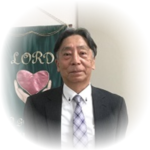↓Audio link to the sermon:(Sunday worship recording)
(If you can’t listen on your iPhone, please update your iOS)
Brothers and sisters, as we grow older—especially after we turn fifty—we begin to realize something. That is… There aren’t that many things in life we can actually choose. Especially very important things in life… The essential matters of life… Let me give you an example. Can we choose our parents? No, we cannot. We don’t get to choose who our parents are. It would be nice if we could, but we simply can’t.
Sometimes, we find ourselves thinking thoughts like these: “I wish I had been born into a rich family.” “I wish my parents were Christians.” “I wish my parents were well-educated.” “I wish they were better looking like handsome dad and pretty mom.” “I wish they were more athletic and talented.”
We don’t have to regret it. We don’t have to feel sad about it. It is because we cannot choose our parents. We are simply born to them. We were born to parents who are short. We were born to parents who are poor. Sadly, parents are given to us. They are given to us. In a sense, we were thrown into them. We cannot choose our nationality, either. “I wish I had been born an American…” “I wish I had been born European…” “I wish I had been born Japanese…” But just like our parents, our nationality is not something we choose — it is given to us. We often don’t have a choice about where we grow up. “I wish I had grown up in Tokyo…” “I wish I had grown up in Osaka…” “I wish I had grown up in Kyoto…” “I wish I had grown up in Chiba…”
I was born as a Korean boy. I was born and raised in Busan, a port city. I was born into a poor family. My father was a poor carpenter. Neither my father nor my mother were Christians. I was born the youngest of three siblings—two sons and one daughter. I did not choose any of these things. All of this was given to me. God ordained that I would be born a Korean boy, in Busan, into a poor family, to non-Christian parents, and as the youngest of three. This is the sovereignty of God.
Proverbs 19:21 says, “Many are the plans in a person’s heart, but it is the Lord’s purpose that prevails.” Proverbs 16:9 also says, “In their hearts humans plan their course, but the Lord establishes their steps.” God’s sovereignty means that God is in control of everything and rules over all things. He made everything in the world, so He has the highest authority. No one can stop His plans, and what He wants to happen will always happen. We believe that nothing happens by chance. Every event—big or small—happens as part of God’s plan and care. This includes each person’s life, the rise and fall of countries, and even the way nature works.
However, even though God is in control of everything, that doesn’t mean human choice and responsibility are ignored. God’s sovereignty works together with human freedom. Theologians teach that, along with God’s sovereignty, we also have “free will.” Still, as we go through life, we come to realize and experience that there are certain things—whether we call them destiny or God’s providence—that we simply cannot resist or control.
Now, let’s go through 1 Samuel 16:1–13, verse by verse. Let’s begin with verse 1:
“The Lord said to Samuel, ‘How long will you mourn for Saul, since I have rejected him as king over Israel?’” The prophet Samuel loved Saul. Even after Saul was rejected by God, Samuel mourned for him for a long time.
But God said to Samuel, “How long will you mourn for Saul, since I have already rejected him?” We, too, sometimes stay stuck in past failures, wounds, or wrong choices.
But God says to us, “Now it’s time to get up. Don’t stay there—move forward. I am doing something new.”
Why did God reject Saul? Why? We can find the reason in 1 Samuel 15:26. Let me read it: “But Samuel said to him, ‘I will not go back with you. You rejected the word of the Lord, and the Lord has rejected you as king over Israel.’” Here we see that Saul was the one who first rejected God—especially God’s Word. He disobeyed God’s will. Because Saul rejected God’s Word first, God also rejected Saul. This is a serious and frightening warning. Brothers and sisters, please do not reject God’s Word. I pray that you always stay close to God’s Word. When we distance ourselves from God’s Word, we also grow distant from God and will eventually turn away from Him. That is why we must meditate on God’s Word day and night. Those who meditate on God’s Word day and night are the ones who truly love God. If we love God, how could He ever reject us?
Hebrews 13:5 says, “Keep your lives free from the love of money and be content with what you have, because God has said, ‘Never will I leave you; never will I forsake you.’” Brothers and sisters, many problems can be solved with money. Right? Honestly, most things can be taken care of if you have money. Right? That’s why we work hard to earn money, save money, and often become obsessed with money. Sometimes, we even end up loving it. Without money, we feel anxious. We feel afraid. We even feel panicked. On the other hand, when we have a lot of money in our bank account, we feel at peace. When our wallet is thick with 10,000 yen bills, we feel joyful. Money makes us feel secure. Without it, we feel anxious and afraid. That’s why we chase after money desperately and cling to it tightly.
But God says to us, “Do not love money! Be content with what you have! You may be rejected by people if you have no money. But I will never reject you because you are poor. Even without money, you will not starve to death. I am the One who watches over you. I am the One who protects you, so do not be afraid.” Let us go back to today’s passage. God commands Samuel to take a heifer and go to the house of Jesse to offer a sacrifice. Samuel obeys the word of the Lord and goes to Bethlehem, inviting Jesse and his sons to the sacrifice.
Verse 6 says, “When they came, Samuel saw Eliab and thought, ‘Surely the Lord’s anointed stands here before the Lord.'” At that time, Samuel was the greatest prophet in Israel. And yet he made a mistake. When he saw Eliab, Jesse’s firstborn, he was impressed. Eliab was not only the eldest son but also tall and handsome. Even a man of God like Samuel judged by mere appearances in that moment. Brothers and sisters, no matter how spiritually mature someone may be, they can still make mistakes. Even those who speak directly with God can make mistakes. If they are not spiritually awake at all times, they can judge incorrectly. In that moment, Samuel made a wrong judgment based on what he saw with his eyes.
Then God said to Samuel, “Do not consider his appearance or his height, for I have rejected him. The Lord does not look at the things people look at. People look at the outward appearance, but the Lord looks at the heart.” Eliab looked like a king in Samuel’s eyes, but God declared that He looks at the heart. God’s standard is not based on outward appearances, but on inner integrity and faithfulness. Human perspective is limited, but God’s judgment is perfect. Brothers and sisters, people judge books by their cover. I, too, often judge based on what I see. To be honest with you, I don’t think that I married my wife just because she is cute. Well, I like cute women. But I tried to look at her heart. Believe me! I knew that she was a woman of faith. I knew that she knew the essence of genuine grace.
It’s not easy for a person to see the heart of another. In fact, it’s difficult. We tend to judge people based on outward appearances. For example: Where are they from? Are they from a wealthy family, a middle-class home, or a poor background? Which school did they graduate from? What did they major in? Where do they work, and what’s their profession? How much do they earn? How tall are they? Are they good-looking, average-looking, or not attractive? Are they pretty and cute? Then people ask, “What about her figure? What is her body like?”
These outward things are the criteria by which we judge and evaluate others. But God knows that we humans tend to judge by appearance. Still, He doesn’t want us to remain at that level. He desires that we grow into mature Christians who, like Him, can look at the heart. Especially, I hope that we can learn the way God values people. I pray that we can learn the way God sees things. We have to know what is in God’s heart? That is the most important thing.
So then, how can we know the heart of God? In 1 Corinthians 2:11, it says,
“For who knows a person’s thoughts except their own spirit within them? In the same way, no one knows the thoughts of God except the Spirit of God.” That’s right. We can only know God’s heart when we are filled with God’s Spirit, the Holy Spirit. The world looks at qualifications, appearances, and backgrounds. But God looks at our hearts, our motives, and the sincerity of our faith. Even if we seem ordinary on the outside, we can be used by God.
In verses 8–10, Jesse had Abinadab, Shammah, and his other sons pass before Samuel, but the Lord said, “Not this one either.” All seven of Jesse’s sons passed by, yet God did not choose any of them. The one God chooses may not follow human order, logic or standards.
Then in verse 11, we read, “So Samuel asked Jesse, ‘Are these all the sons you have?’ ‘There is still the youngest,’ Jesse answered, ‘but he is tending the sheep.’ Samuel said, ‘Send for him…’” David was someone who was ignored even within his own family. He wasn’t even invited to the sacrifice. He wasn’t considered important enough to be included. But God lifts up the one whom the world has rejected. Brothers and sisters, listen carefully. God sees what others overlook. God calls those the world ignores. The one who wasn’t invited… the one left out in the field… That’s the one God had chosen to anoint. God lifts up the lowly. He honors the rejected. He uses the ones who seem insignificant to accomplish His great purposes.
In verse 12, it says, “So he sent for him and had him brought in. He was glowing with health and had a fine appearance and handsome features. Then the Lord said, ‘Rise and anoint him; this is the one.’” Actually, David was handsome. He had striking eyes and a beautiful face. But even so, what God saw was not just the outward appearance. God looked at his heart. David was a man after God’s own heart. And now, David is chosen by God. What I am saying is that what matters most is the heart—a heart that seeks God, trusts Him, and lives according to His purpose.
In verse 13, it says, “Samuel took the horn of oil and anointed him in the presence of his brothers; and from that day forward the Spirit of the Lord came powerfully upon David…” The official anointing is an act that publicly declares David as God’s chosen one. After this, the Spirit of God, the Holy Spirit, comes upon him.
God’s anointing is not merely symbolic, but signifies the presence of the Holy Spirit. David was empowered by the Holy Spirit. He received power from above. Through this, David is prepared as an instrument for the kingdom of God.
I wanna conclude today’s sermon here. Brothers and sisters, there aren’t many things we get to choose for ourselves. Most of the time, we are not the ones choosing—we are the ones being chosen. That’s right. We need to be chosen.
So, how can we be chosen? Especially, how can we be chosen by God? Our natural background and circumstances might not be good. But if our hearts match God’s heart, He will choose us. God will pick us and use us for His kingdom.
Let us pray.
(If you can’t hear from the bar above, click the blue button)
iPhone





 日本語
日本語